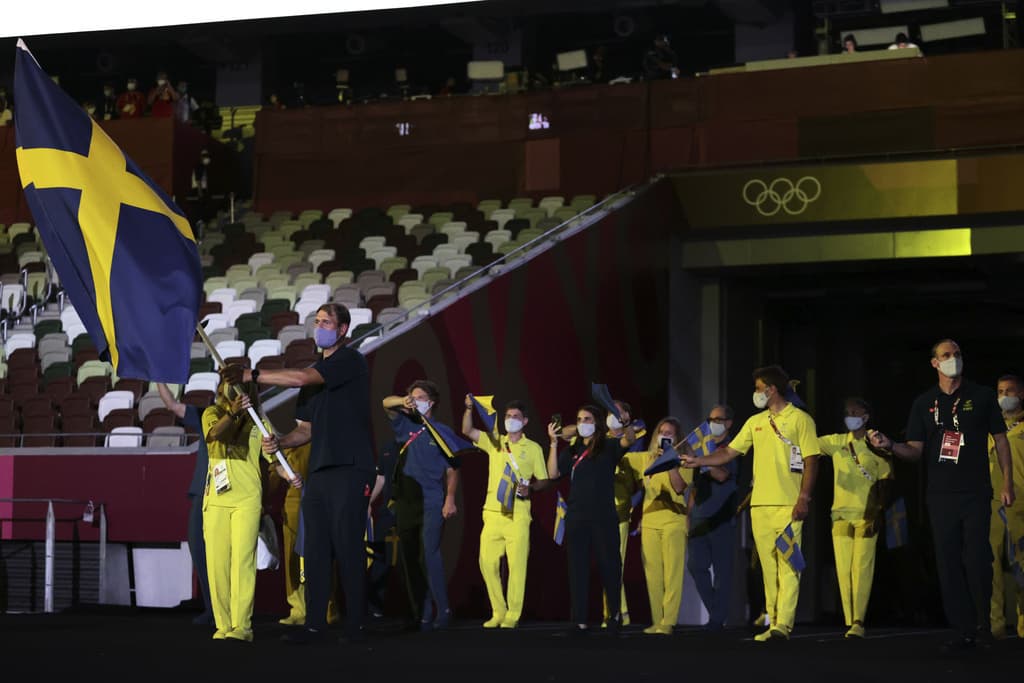OS in Paris is approaching – and now the Swedish Olympic Committee (SOK) is sounding the alarm about the tough economic reality for athletes.
In over half of the national teams, active athletes are forced to pay to compete. On average, it's about 100 000 kronor per season.
The path to elite and top-level sports is becoming longer for many, says SOK's Secretary-General Åsa Edlund Jönsson.
According to a new survey from SOK, athletes in over half of all Olympic national teams have to pay to compete – on average, nearly 100 000 kronor per season.
This could ultimately affect Sweden's Olympic participation, according to SOK's Secretary-General, Åsa Edlund Jönsson.
How many will want to make that commitment when they hear that the path to reaching the top is going to be longer and harder? How can we engage young people who are on the threshold of a national team commitment to want to continue when they hear how the reality looks for Olympians and future Olympians? It's a bit worrying, she says.
Falling behind competing countries
The survey is based on interviews and questionnaires with 630 athletes in 41 Olympic national teams. The report shows that a third of the national teams state that they currently do not have sufficient resources to conduct internationally competitive activities, and a quarter describe that they will have to reduce their activities in the future.
In comparison, Sweden is investing far less than comparable countries, both in and outside the Nordic region, in Olympic sports. Norway and Denmark are investing twice as much, the Netherlands three times, and Switzerland four times as much, according to SOK.
Today, there is a support programme, "Topp och Talang", where athletes with high potential receive financial support to enable a 100 per cent commitment to reaching the world top. It is financed by sponsors and commercial actors.
Despite this, several athletes are now testifying to a tough economic reality.
"We need to join forces"
Edlund Jönsson believes that Swedish top-level sports are just as important as other areas in the country.
Blue and yellow top-level sports make a difference for Sweden in several ways. In 44 days, it's the European Championship in Paris, and we as a nation will gather around shared experiences. It will be moments that we will talk about for generations to come. The national gathering is almost unmatched in anything else today.
According to SOK, the sum required to avoid falling behind is 200 million kronor. 100 million from the state and 100 from commercial actors. Now, Åsa Edlund Jönsson is appealing to both, hoping that a joint project can be started.
We need to do it together with politics and business. We need to join forces, and everyone needs to understand that this is a project that we're doing for Sweden together, and that we will be proud of for generations to come if we succeed, she concludes.
Today, there is a support programme within SOK, "Topp och Talang", where top athletes or athletes with high potential receive support to enable a 100 per cent commitment to reaching the world top. It is financed by sponsors and commercial actors. The programme is tailored to each athlete's situation.
Part of the programme is that you can apply for a scholarship to make life as an elite athlete easier. The requirement is that the athlete must have a gross income below 300,000 kronor/year (25,000/month).
In 2023, 150 athletes were part of the programme, from the national teams included in SOK's new report. During the same year, scholarships were awarded to a total of 88 athletes.
Source: SOK's report on athletes' national team costs.






